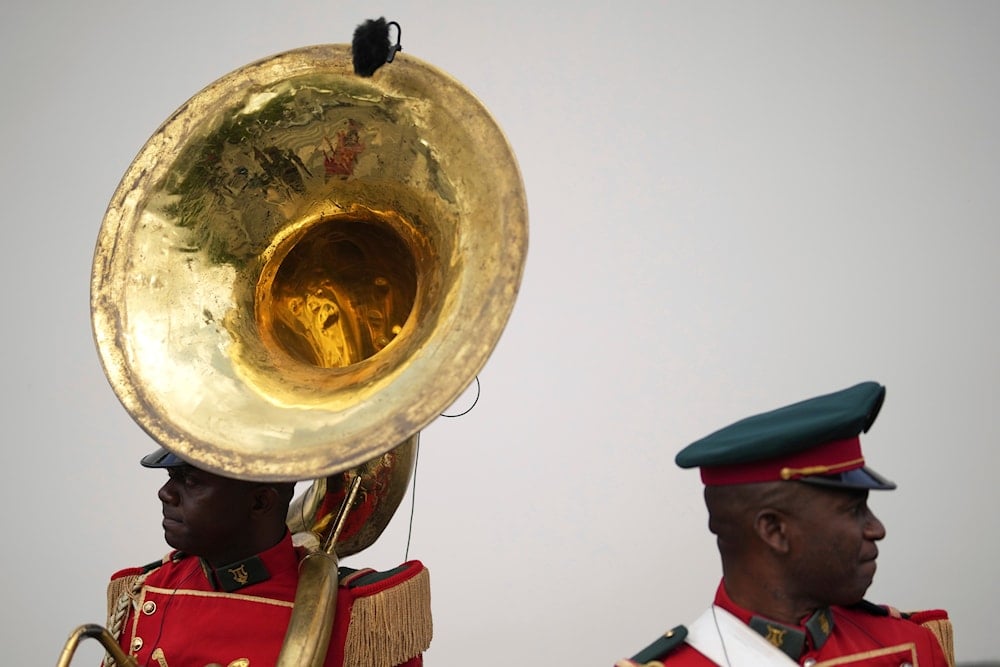Macron admits France’s role in brutal Cameroon decolonization war
In a letter to President Paul Biya, Macron vows archive access and joint research into France’s violent role in Cameroon’s independence struggle.
-

Members of a military band from Cameroon wait before ceremonies marking the 80th anniversary of the end of World War II in Europe, Thursday, May 8, 2025, in Paris. (AP)
On August 12, 2025, French President Emmanuel Macron admitted that France waged a “war” marked by “repressive violence” during and after Cameroon’s decolonization in the late 1950s. The acknowledgement came in a letter to Cameroonian President Paul Biya, published Tuesday.
The letter is part of Macron’s broader effort to confront France’s often violent colonial past. It follows a January report by a historical commission that found France carried out mass forced displacements, interned hundreds of thousands of Cameroonians, and backed brutal militias to suppress Cameroon’s independence movement.
The commission, formed in 2022 and composed of French and Cameroonian historians, investigated France’s role from 1945 to 1971 using declassified archives, eyewitness testimonies, and field research.
“The historians of the commission made it very clear that there was a war in Cameroon, during which the colonial authorities and the French army carried out repressive violence of several kinds... that continued after 1960,” Macron wrote.
“It is incumbent on me today to accept France’s role and responsibility in these events,” he added.
Wider context
Most of Cameroon fell under French control in 1918 after Germany’s defeat in World War I. Following World War II, as Cameroon pushed for independence, France violently repressed the movement. Between 1956 and 1961, the conflict claimed “tens of thousands of lives” and displaced hundreds of thousands, according to the report.
The war in Cameroon has often been overlooked in France, overshadowed by the Algerian War of Independence (1954–1962) and primarily involving African colonial troops.
Despite independence in 1960, France maintained deep involvement in Cameroon’s governance, closely supporting the authoritarian and autocratic rule of Ahmadou Ahidjo until 1982. Paul Biya, in power since then and currently the world’s oldest head of state at 92, is set to run for an eighth term in the October presidential election.
Cameroon’s opposition faces significant challenges, including the recent rejection of main opposition leader Maurice Kamto’s candidacy by the constitutional court. Human Rights Watch and other groups have accused Biya of suppressing dissent.
Macron pledged to facilitate access to French archives for further research and proposed forming a bilateral working group to monitor ongoing investigations and educational initiatives.
While Macron has taken some steps to address France’s colonial legacies, including admitting “overwhelming responsibilities” in Rwanda’s 1994 genocide and calling for truth commissions related to Algeria, he has stopped short of issuing formal apologies for abuses such as torture during the Algerian War.
Read next: Tebboune: French colonialism's massacres ingrained in Algerian memory

 3 Min Read
3 Min Read










